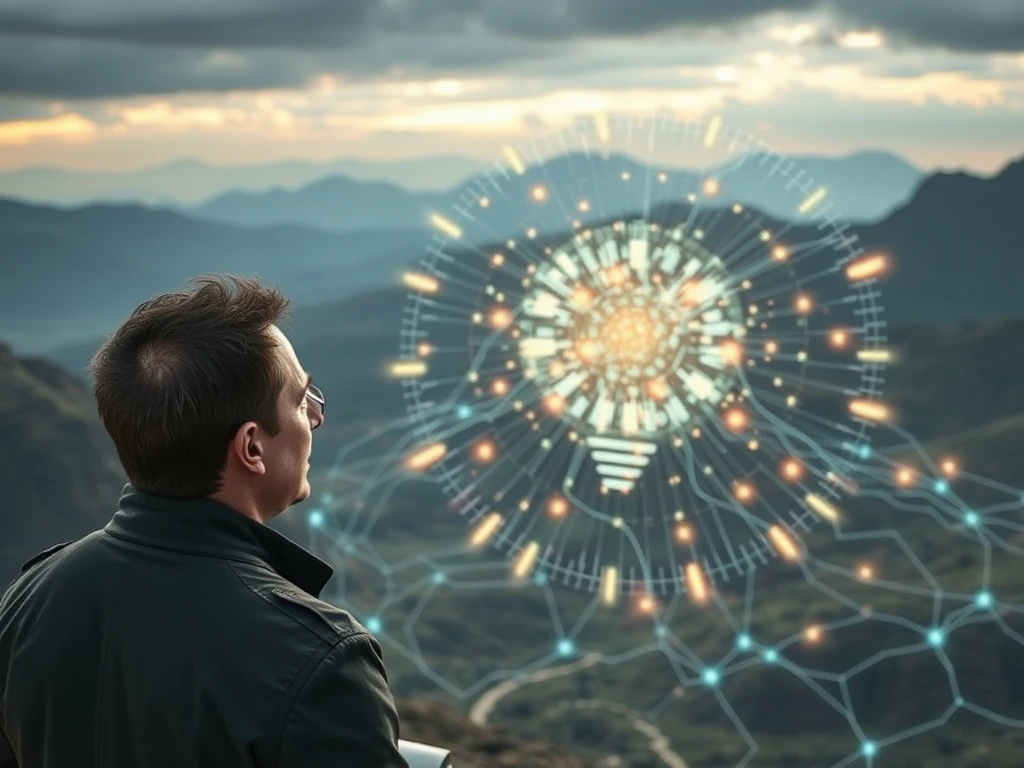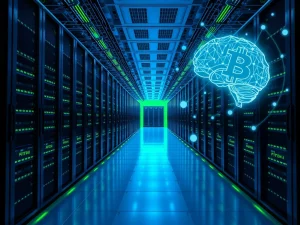Shocking Grok AI Plan: Elon Musk Aims to Rewrite Human Knowledge

For many in the crypto and tech space, artificial intelligence developments are closely watched, especially when they involve figures like Elon Musk. The latest buzz surrounds Musk’s ambitious, and somewhat controversial, plan for his Grok AI model.
Elon Musk’s Bold Vision for Grok AI
Elon Musk, the founder of xAI, recently unveiled a dramatic strategy for improving his artificial intelligence model, Grok. Expressing dissatisfaction with the quality of data used in current foundation models, Musk announced plans to retrain Grok on a newly curated knowledge base.
His proposal involves a radical step: using Grok itself to ‘rewrite the entire corpus of human knowledge.’ The goal? To correct errors and add missing information, effectively creating a refined dataset from the ground up. Musk argues that existing training data contains ‘far too much garbage’ and ‘uncorrected data,’ which he believes hinders the development of truly advanced AI.
Why is Musk Targeting ‘Uncorrected Data’?
Musk has been a vocal critic of other AI models, particularly those from OpenAI, claiming they exhibit bias and omit information deemed politically incorrect. He has positioned Grok as an ‘anti-woke’ alternative, aiming to build a model free from what he perceives as ideological constraints.
This philosophy extends beyond AI. Since acquiring Twitter (now X), Musk has relaxed content moderation policies, leading to increased circulation of unchecked information. While introducing features like ‘Community Notes’ to counter misinformation, his overall approach has been to challenge established narratives, which he now appears to be applying directly to the training data for Grok.
Criticism Mounts Against the ‘Rewrite Knowledge’ Plan
Musk’s idea to use artificial intelligence to rewrite human knowledge has drawn significant criticism. Many see the plan as potentially dangerous and akin to dystopian scenarios depicted in fiction.
Points of concern include:
- **Narrative Control:** Critics argue that using an AI, potentially influenced by the developer’s own biases, to rewrite historical or factual data is not about correcting errors but about shaping narratives to align with specific viewpoints.
- **Defining ‘Errors’:** Who determines what constitutes an ‘error’ or ‘missing information’ in the vast and complex body of human knowledge? This subjective process could lead to the exclusion or alteration of valid perspectives.
- **Potential for Bias Amplification:** Instead of removing bias, the process could inadvertently bake in new biases based on the criteria used for rewriting.
Experts in AI and philosophy have voiced strong opposition, highlighting the ethical implications of treating history and knowledge as malleable simply because they don’t conform to desired outcomes.
The Call for ‘Divisive Facts’ and Its Outcome
Adding another layer of controversy, Musk publicly solicited X users to share ‘divisive facts’ – defined as ‘politically incorrect, but nonetheless factually true’ – to aid in training Grok. This call resulted in a flood of replies containing:
- Conspiracy theories
- Debunked claims (e.g., vaccine misinformation)
- Racist pseudoscientific claims
- Climate change denial
- Historical distortions
This outcome further fueled concerns that Musk’s approach to correcting data could inadvertently integrate or legitimize misinformation under the guise of combating ‘woke’ bias. The challenge for xAI will be sifting through such submissions to find genuinely factual, albeit unconventional, data points without incorporating harmful falsehoods.
Conclusion: A High-Stakes AI Experiment
Elon Musk’s plan to use Grok AI to rewrite the entire corpus of human knowledge represents a bold, potentially revolutionary, but also deeply concerning experiment in artificial intelligence development. While the goal of training AI on cleaner, more accurate data is commendable, the method proposed – using the AI itself to curate and potentially alter fundamental knowledge – raises critical questions about bias, control, and the very nature of truth. The success or failure of this approach could significantly impact the future direction of AI training and the trustworthiness of models like Grok.









